Moving to South Africa – A Complete Emigrating Guide

If you are considering emigrating to South Africa, you must read our guide to know all the details.
As of January 2020, it is believed there are around 212,000 British expats living in South Africa.
This number is high for a reason, South Africa has so much to offer!
South Africa is undoubtedly one of the most stunning landscapes in the world, home to every terrain imaginable.
From the menacing mountain rages to the immaculate beaches, South Africa is an outdoor lovers dream!
A relatively low cost of living, amazing wildlife and warm climate are just a few more reasons South Africa has become so popular with wantaway Brits.
With English being the official language of South Africa, expats have no need to worry day-to-day about language barriers.
And whilst South Africa has 11 nation languages, adapting to life in South Africa should be no problem when it comes to language.
It is quite clear why so many people are considering emigrating to South Africa.
If you are one of those individuals, here is our guide to help you get moving to the marvellous Rainbow Nation!
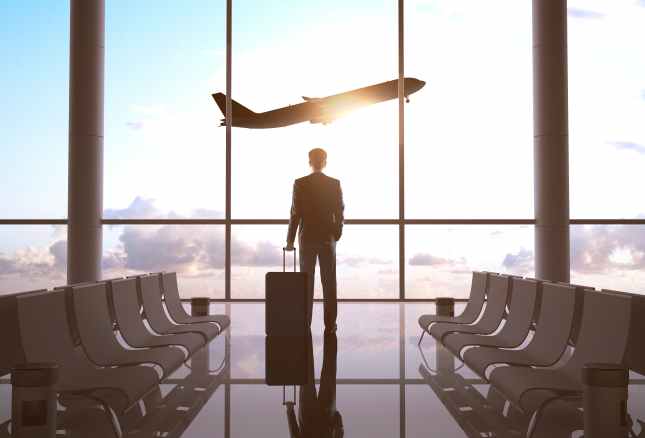
Before Setting Off
When travelling anywhere, our first piece of advice is to check the current travel advice from the government.
Due to vast landscapes present in South Africa, natural disasters and other dangerous events are not unlikely.
It is also important to understand the unrest in the history of South Africa before moving to the country.
This is unfortunately an important part of the country’s identity.
It is of paramount importance that you keep up to date with the current situation in the areas of South Africa that you are planning on moving to.
This shouldn’t put you off however, you couldn’t find friendlier people if you tried!
Residency Permits
As a British Citizen, if you are simply visiting South Africa all you require is a passport.
This is handy if you want to visit the country to see if living there is an option.
If you stay for longer than 90 days, you will require a temporary residence permit.
The permit will allow you to live and work in South Africa from 3 months up to 3 years.
If you are interested in emigrating to the country, you can apply for this permit from your closest South African embassy.
In total there are twelve different types of temporary residence permits, each accommodating different groups.
The most relevant permits for expats are:
- Business permits for people looking to invest in South African businesses or setting up a new business in the country themselves.
- General work permits are popular with people who have general qualifications looking to work in South Africa – this type of permit will apply to many.
- Critical skills work visa for individuals with skills that are regarded as critical or outstanding by the South African government.
- Study permits for those wishing to study at any level in South Africa.
It is important to organise any permits before embarking on your trip, this helps to avoid any possible confusion.
Permanent Residency and Visas
The next steppingstone is becoming a permanent resident of the country.
This is both a long and costly process but is certainly a requirement for those looking to live in South Africa for a prolonged period.
Expats have access to 7 different types of permanent residency.
Most notable of these are:
- Relative’s permit for those who are biological relatives of South African citizens.
- Spousal/ life partner permits are granted to married couples when one half of the relationship is a South African citizen.
- Five years continuous work permits are granted to those who have already lived and worked in South Africa for 5 years.
- Retirement permits for those looking to spend their retirement in South Africa.
When applying for any of these residencies, you will be required to provide certain documents.
These include passport photographs, a valid passport, birth certificate, a medical certificate, a police record check from the past 6 months and a marriage certificate if you have one.
To make this somewhat arduous process as quick as possible, it is advisable to be as prepared as possible, ensuring you have access to all the documents.
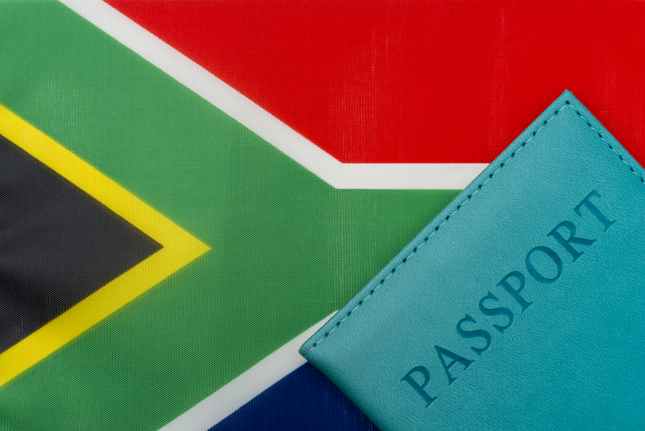
Becoming a Citizen
In order to become a South African citizen, you must have followed all of the permanent residency steps.
You also need to have spent five years living in the country when you apply for full citizenship.
For spousal application it is a two-year requirement.
Further requirements of all applicants for South African citizenship are more specific to South African culture.
These include the individual must be of sound character, must be proficient in one of South Africa’s official languages and good knowledge of the duties and responsibilities of a South African citizen.
South African citizenship isn’t the most demanding to obtain, with places like Australia and the USA being far more challenging.
The government provides lots of details on everything required to become a citizen.
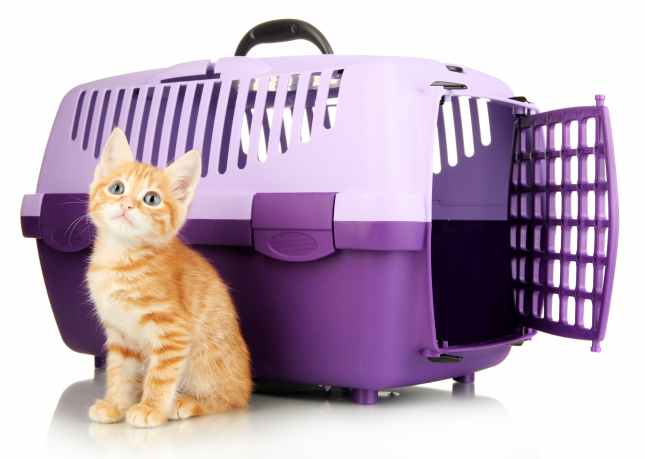
Taking Your Pets
Bringing animals into South Africa is possible if you follow all of the requirements for importing pets here.
These specifications include making sure your pet has a microchip.
You must receive a veterinary certificate from your vet stating your pet is healthy and fit to fly.
Proof of a rabies vaccination will also be required before you arrive.

Driving in South Africa
If you are moving to South Africa from the UK, there shouldn’t be too much difference between everything you are used to.
Just like in the UK, cars drive on the left-hand side of the road.
I’m sure you’ll agree this is a relief!
It may take some time to become accustomed to the speed limits which are set in Kilometres per hour (km).
But this is far easier to adapt to than many locations.
Whilst there are certainly some different rules, there shouldn’t be any that are too shocking.
It is important to note that you will be required to obtain an International Driver’s Permit as well as you British driving license.
So make sure you have everything in order before driving in South Africa.
Importing Your Car
If you decide you want to bring your current car with you when emigrating to South Africa, it is very important to follow these steps:
- Be granted an authority letter from the South African Bureau of Standards (SABS).
- Complete the ‘Application for importation of a second hand or used vehicle’ form (form IE462).This can be obtain here.
- Submit a copy of your permanent SA residence certificate; foreign passport; and foreign car registration certificate.
- Wait for the application process to be completed. A customs duty will need to be paid to the South African Revenue Service (SARS).
The cost and complexity of this process deters many from bringing their car with them.
It is also important to know that you cannot sell your imported car in South Africa until you have lived there for 24 months.
Whilst it is not the easiest process, it is still an option if you cannot part ways with your car.
Population
source: tradingeconomics.com
The current population of South Africa is 58,998,536.
This has risen significantly in the last 10 years, with South Africa ranking number 25 in the list of countries by population.
Located in the Gauteng Province, Johannesburg is the largest city with a population of 4.4 million.
Capetown and Ethekwini are a close second and third, with populations of 3.7 million and 3.4 million, respectively.
66.7% of the country’s population live in urban areas, whilst this seems high, in 2018 the UK had an astounding 83.4% living in urban regions!
GBP to ZAR Exchange Rate
Currency data courtesy coinmill.com
Due to economic uncertainty surrounding Brexit, the value of the GBP has fluctuated drastically in recent years.
When transferring from GBP to ZAR, always check the current and previous exchange rates.
This will inform you of the best time for you to change up your money.
Crime Rates
Whilst South Africa is known for extremely friendly culture, it is important to highlight the current crime rate in the country.
In some areas poverty and crime are rife, his affects the life of citizens and businesses.
The national theft and murder rates showed an increase in 2018 with this trend continuing.
Nyanga, in Cape Town was the most dangerous place in South Africa last year, with a total of 9324 recorded incidents.
Although the county has come a very long way, tensions still exist, it is important to understand the history of the country and which areas to be cautious in.

Births
Public health services in South Africa are infamously underfunded, most expats will choose private healthcare.
If you are moving from the UK, it is important to obtain health insurance, something you my not necessarily be accustomed to.
For example, if you don’t have medical aid cover in South Africa but wish to give birth at a private hospital, you need be prepared for an average cost of R20,000!
If you or your partner is a South African citizen or either of you are a permanent resident of the country, your child will automatically be given South African citizenship.
Deaths
Unfortunately, people pass away, this doesn’t discriminated and can happen anywhere at any time.
In the untimely event that someone dies while abroad, the death must be registered with the local authorities in the country.
You will also be able to register the death with UK authorities.
The best way to begin the process of dealing with a loved one passing away is to contact Tell Us Once; they will help guide you through the procedures.

Marriages
The process of moving to South Africa from the UK, whilst relatively straightforward compared to moving to certain other countries, is certainly not easy.
The common belief that getting married to someone instantly gives you access to that country isn’t totally true.
It can help but it’s a little more complicated, with a two year wait until become citizen.
If you are a marrying a South African citizen, there are certain rules that need to be followed.
Both individuals will need to appear in person (with the correct documentation) at a Home Affairs Office to make an appointment with the immigration interviewing officer
The documentation will be verified to secure your Interview date.
Once the interview has been completed, an Immigration Report will be drawn up and submitted to the marriage section.
Non-South African citizens will be required to present the following documents:
- A copy of the front page of your passport.
- A copy of the Visa Page in your passport.
- 3 x ID photos.
- If you have been previously married, Home Affairs will require a copy of the decree of divorce/death certificate.
- A letter of non-impediment (certificate from your country of citizenship confirming freedom to marry.

Working in South Africa
The ease with which you can obtain a job is dependent on what type of visa or permit you have acquired.
South Africa has a variety of jobs in different sectors, especially for skilled workers, so finding employment here is indeed possible.
Historically, South Africa’s economy has been focused on agriculture and mining.
However, this has diversified since the turn of the millennium, with the focus now shifted towards retail, communications and tourism.
The future of the Rainbow Nation’s economy is very exciting, with the main aim being a growth in technology, finance and e-commerce services.
Such a range of adaptation and growth is very exciting for prospective employees as there is certain to be demand for these sepcific services.
It is certainly advisable to obtain employment prior to your move.
If you’re looking for work, make sure to visit Pnet and other sites like it.
Here you will be able to see if your skills are in demand.
Taxes
Unlike the UKs three-banded tax system, South Africa has seven incremental tax brackets:
- Up to R195,850: 18%
- R195,851–R305,850: 26%
- R305,851–R423,300: 31%
- R423,301–R555,600: 36%
- R555,601–R708,310: 39%
- R708,311+: 41%
- R1,500,001+: 45%
Despite having more brackets, the levels of tax paid are very similar to the UK, so there shouldn’t be any major changes.
It is important to remember that you will likely require medical insurance for private health care when living in South Africa.
This is an expense that isn’t needed in the UK due to the NHS.
VAT is also slightly less in South Africa, at 14% compared to 20% in the UK.
Pensions
If you’ve built up a state pension in the UK, it’s essential to inform the relevant authorities.
You should be able to claim a UK pension if you have paid enough UK National Insurance to qualify.
The South African pension system is based on a three-pillar system.
A non-contributory established South African Social Security Agency grant provided to most pensioners.
Various insurance-based employee and company pensions and provident funds.
As well as private pensions and insurance arrangements.
The official retirement age in South Africa is 65 years of ages but many individuals retire a lot younger than this with the right infrastructure in place.
Retirement culture in South Africa is a lot more lenient than in the UK where retirement age is seemingly ever rising!
Social Security System
If you currently receive benefits, then it is likely you will not be able to receive them after moving abroad.
Income-related benefits will be void if you are out of the country for more than four weeks at a time.
In South Africa, Social security payments and benefits are primarily handled by the South African Social Security Agency, known as SASSA.
The amount of social security benefits you can claim is directly linked to your contribution. You earn one credit for every six days that you have worked.
Expats are only able to access social security benefits in South Africa if they become South African citizens or take up permanent residence.
Both of which have been discussed earlier in this article.
Buying Property
When compared to the UK, buying a house in South Africa is surprisingly cheap.
The current average price for an entry level home is around ZAR 937,000 (47,648 GBP), with an average medium-size house currently costing around ZAR 1,255,000 (63,819 GBP).
Despite steady increases in the last year, property prices in South Africa remain relatively low.
Expats are allowed to freely purchase property, although mortgage options are limited for non-resident buyers, meaning a higher upfront cost.
When compared to London, every square metre in Johannesburg, is 94% cheaper!
Renting Property
South Africa has a extremely lively rental market, with flats, townhouses and a range of other property available.
Prices are very reasonable, especially when compared to those in most other Western countries.
It is easiest to find a property in the autumn and winter, particularly between May and September.
A ‘furbished’ property will be equipped with pretty much everything you would need.
Unfurnished property will generally include an oven and other white goods, but no more than this.
The cost of renting a one bed flat in Johannesburg is currently 5,766.10 Rands (293.37 GBP), this is significantly lower than most areas of the UK!

Cultural Differences
Whilst there are certainly lots of similarities between the UK and South African, most notably the language, there are also some drastic differences to consider.
Unlike in the UK where life seems to fly by in a busy whirl, South African culture is far more relaxed.
A balance between work life and home life is a really important aspect of South African living.
Once you return home from work, it is common to relax at the beach, enjoy drinks and try to forget about work!

Language Barriers
There are 11 official languages in South Africa: English, Afrikaans, IsiZulu, isiXhosa, isiNdebele, siSwati, Sepedi or Sesotho sa Leboa, Tshivenda, Xitsonga, Sesotho and Setswana.
Whilst English is only the mother tongue of 9.6% of South African citizens, it is taught in all school as a requirement to pass high school exams.
Every street in South Africa has a robot on it!
You may notice some differences between English spoken in the UK and South African English, notably that traffic lights are called robots.
There are various other dialect differences between the English being spoken.
But there is also a massive difference within regions of the UK itself, so this shouldn’t be too significant of a problem.
If you have a desire to learn one of the official languages, there are a multitude of place you can take classes.
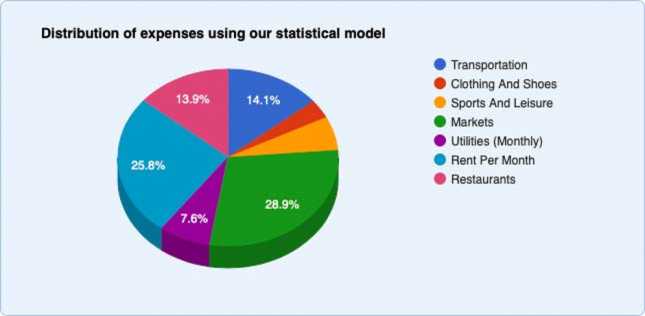
Cost of Living
The cost of living in the South Africa is higher than you might have initially expected, this is thanks to an emerging economy and the strengthening of the South African rand.
However, it is still a much more affordable country to live in than most European, Asian and North American countries.
The cost of living in major cities when compared to London is really quite significant.
Johannesburg is 48% cheaper than London, Cape Town is 55% cheaper, Durban is 58% cheaper and Port Elizabeth is a staggering 60% cheaper!
Considering these drastic differences, you are in for a nice surprise when you pay your bills after moving to South Africa.
Quality of Life
A survey conducted by HSBC indicates that 62% of expats who have moved to South Africa have seen an improvement in their quality of life.
Over 18,000 expats were interview for the survey, with over 55% now saying that can see themselves staying in South Africa for over 20 years!
Notable reasons for this improvement in quality of life are of course the weather but also the culture, which is much more appealing to many.
The survey also shows that expats in South Africa take part in more voluntary work.
Expats also participate more in local communities since moving here than those who moved to other countries!

Healthcare System
Unlike the UK’s centralised public health care system, the NHS, South Africa has two services working side by side.
The public healthcare system in South Africa, as previously mentioned, mostly underfunded, with lots people waiting for the more affordable treatment.
The second, private system, is targeted mainly at the middle and upper classes and charges much high prices but provides a better service.
It is very common for expats to obtain their treatment from completely private hospitals.
Johannesburg offers some of the best healthcare across the whole of Africa.
It is important to remember private healthcare is extremely expensive, so health insurance is an absolute must!

Education System
Schooling in South Africa is compulsory and legally begins at age 7, however most students begin school at age 5 or 6, finishing when students are 18 unless they wish to pursue further studies.
Unlike many countries where schools are in session from summer to summer, South African school are open from mid-January to early December.
The 2015 OECD rankings, rating countries on the levels of maths and science at the age of 15, showed South Africa as the second worst country, putting it in 75th place!
This statistic isn’t overly shocking, with some fundamental failures of the educational system only now beginning to be addressed.
With such a low quality of education, it is very important to understand what the best options are for your children.
Private schooling is particularly popular with expats.
However, this is not always cheap, with the average tuition fees amounting to between R30,000 and R70,000 (1520 GBP to 3550 GBP) per year.
If you want to ensure a high-end education for your family, you will unfortunately have to fork out for the finest standard.
Expat Hotspots
South Africa has numerous locations that are very popular amongst expats, all with lots to offer!
Cape Town is possibly the most popular location and it’s no wonder, it is one of the most beautiful cities in the world!
The city enjoys picturesque beaches, stunning views, world renowned restaurants and wines.
Moving to Cape Town means endless adventure in the beautiful South African outdoors.
Another favourite location for expats is Johannesburg.
Jo’burg is South Africa’s largest city and its economic centre.
With an array of different cultures, the city is ahead of its time and has become popular with those accustomed to an urban lifestyle.
Durban is popular location with beach loving expats.
The dazzling seaside locations and huge waves makes it a hotspot for surfers as well as being home to South Africa’s largest port.
A Fresh Start
Where better for a fresh start than somewhere halfway across the world?
South Africa is emerging as a brilliant destination for expats to relocate to.
Offering an abundance of land; beautiful climate and picture-perfect landscapes wherever you go.
So, if you’re looking for a new job, a change of scenery or some more adventure, South Africa is for you.

Making Friends
Depending on which city you choose to call your new home will directly impact how easy it is to expand your friendship groups.
As general rule, South Africa is extremely friendly and making new companions shouldn’t be too much of as struggle if you are happy to put some effort in!
Johannesburg, being the most urban region in the country, is a little more cliquey.
This doesn’t mean there isn’t anyone for you here, it may simply mean joining a site like Meetup.com.
Sites like this assist expats with meeting like minded people.

Family Life
Moving abroad with a family is a very big decision.
It is thus very important to access the service available for you and your family.
If you are moving to South Africa with children, you may need to find a childcare service provider.
Childcare is provided either privately, state funded or by community groups.
Compulsory education doesn’t begin until aged seven, however grade reception for children aged up to seven provides a fantastic education standard a younger family.
Lessons include, mathematics, life skills, technology and languages.
You can be sure that if you are emigrating to South Africa with your family there are fantastic provisions for all ages!
Public Transport
South Africa has an excellent travel infrastructure which includes 15 regional airports, numerous bus companies with routes all around the country, as well as a terrific train network.
Whilst travelling by train is one of the slower options, it is very comfortable and offers the opportunity to indulge in the spectacular views across the country
Buses are the most affordable way to travel, most are fitted with toilets and air conditioning, both very necessary.
Bus fares are dependent on how far you are travelling, with some MyCiTi buses in Cape Town cost as little as 35 Rand (£1.77)
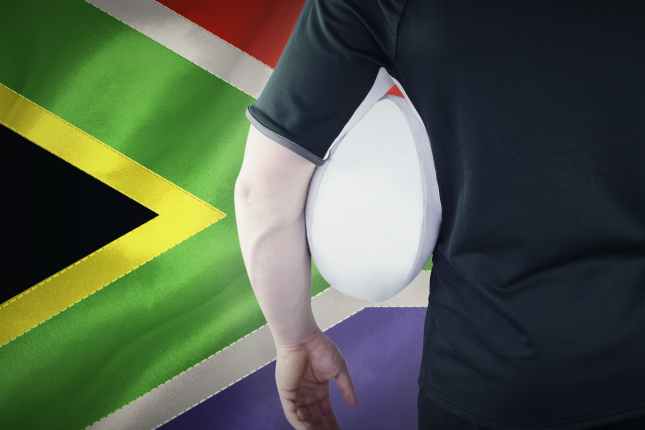
Watching Sports
South Africa is well known for its extremely high level of sports.
The national sport of the country is football, with the country having hosted the 2010 World Cup.
You may remember the iconic sound of the tournament…the dreaded vuvuzela!
South Africa has its own professional football league, games are very well attended, tickets can be purchased here.
Whilst football is the national sport, both rugby and cricket are also extremely popular.
South Africa recently won the Rugby World Cup in Japan, with ‘The Springboks’ beating England in the final!
You can enjoy live rugby in locations across the country, with tickets readily available, you certainly won’t be disappointed by the fantastic atmosphere.
Playing Sports
As previously mention, Football, Rugby and cricket are certainly the most popular sports in South Africa.
If you are interested in participating in any of these sports, there are endless clubs you can join at all levels.
If these sports aren’t your cup pf tea, the Rainbow Nation is also world renowned for its spectacular Golf courses!
There is a real range of courses ideal for newbies or experienced golfers, for more ideas take a look at the some of the best locations here.
There is also a great network of gyms for those keen on staying fit when emigrating to South Africa.
Everyone knows joining a new gym is never the easiest process, it can feel very intimidating, but you are sure to find the perfect location with a little research!

Wildlife & Safaris
One of the first things that comes to mind when you think of South Africa is undeniably Safari.
There is an array of astonishing wildlife to see across the country.
Much of this wildlife will be unlike anything many expats have ever seen, at least in the wild.
South Africa is home to all of ‘the Big Five’ which consists of the elephant, buffalo, leopard, lion and the rhino.
You can also find over 300 other mammals across the Rainbow Nation, including giraffes, zebras and cheetahs.
Be sure to take part in an organised safari tour for a once in a lifetime opportunity!
Weather & Climate
Arguably the top reason expats and tourists are drawn to South Africa, the lovely weather here will certainly be a welcome change for many UK residents!
One very different aspect of the climate you will notice is the seasons.
Summer in South Africa is sizzling, temperatures of over 30°C are common and can rise up to 40°C in some of the hotter areas.
Winter in South Africa arrives from June to August, you can expect mostly dry weather and cooler temperatures, there is often Snow in the mountainous regions and lots of rain in the Cape.

Beaches
South Africa’s beaches are undoubtedly one of the main tourist attractions in the country.
There is a variety of beautiful beaches dotted across the country.
With 8 of South Africa’s beaches ranked in the top 50 beaches in Africa, there is sure to be one near you.
Coffee Bay on the Eastern Cape is one of the most popular beaches, scoring a perfect 10 out of 10 for remoteness, beauty and water quality!
The remote seaside town offers the perfect break for those looking for a well-deserved break, with spectacular walks, great fishing and some cosy bars and restaurants.
Click here to find out which other beaches to put on your south Africa bucket list.
With such spectacular weather, one of these magnificent beaches may even become your second home!

Stunning Landscape
South Africa is located at the southern most point of the African continent.
The coastline covers over 1,770 miles, stretching from its western border with Namibia to the eastern boundary with Mozambique.
Within this vast and diverse area are some of the continent’s most spectacular landscapes.
Located only two hours outside of Cape Town, The Cederberg Mountains offer a spectacular retreat from modern life.
You have the chance to follow one of the various walking routes to reach viewing points and truly embrace the beautiful African terrain.
This is the perfect location for star gazing and offers some truly unique landscapes that you will struggle to beat anywhere is the world!
To find out about even more stunning locations to visit when emigrating to South Africa, click here.
Nearby Destinations
Living in a new part of the world will mean a whole host of new holiday destinations.
Visit one of the stunning locations within South Africa.
Domestic holidays are extremely popular in South Africa, with the most popular holiday destination being the beautiful coastal Durban.
Whilst there is easy access to the rest of Africa, the most popular tourist destinations for South African citizen are the United Kingdom, the USA, France and Thailand!
Whatever your plans, make sure either your British passport will not expire anytime soon, or obtain a South African passport through citizenship.
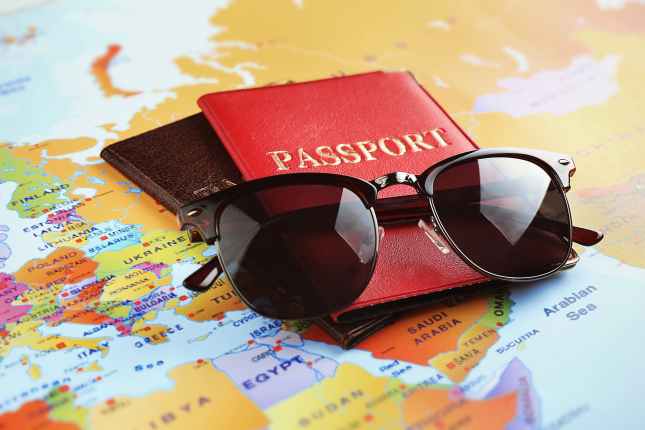
Closer Than You Think
Whilst it is not the shortest flight ever, there are certainly worse flights for those emigrating from the UK (Australia, we’re looking at you!).
The shortest flight time you can expect is around 11 hours, this is certainly not short but there aren’t any layovers and choosing a night flight will make it more manageable.
The cost of flights to South Africa is variable, booking well in advance may help shave some of the cost off.
Moving There
With technological advancements, there really is no better time to travel than now.
Flights to and from South Africa run 24/7, making it easier than ever to get there.
Issues often arise when travelling to a new country, so it’s important that you know the South African lifestyle is for you.
It is certainly for the best to visit the country before fully moving, if you don’t like it, you can simply fly back.
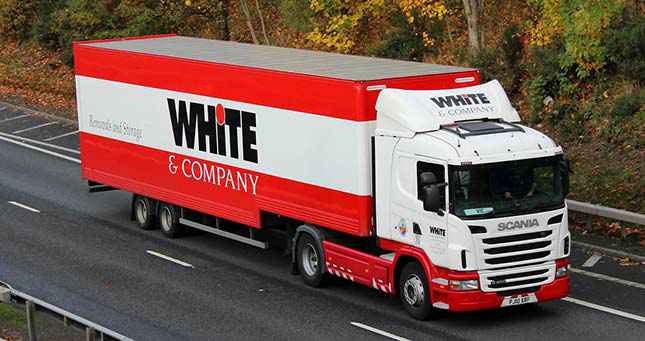
Are you ready to get moving to South Africa from the UK?
Moving abroad is stressful for all involved. That’s why White & Company are here to help your move to South Africa be smooth and stress-free.
Over the years, White & Company has positioned itself as the international removals firm of choice for removals worldwide.
Our experience is second to none. As members of BAR, FIDI and OMNI, White & Company have been relocating people to destinations worldwide for 145 years.
Our experienced teams located across the UK will pack and prepare your valuable, fragile and bulky furniture ready for export
To find out more about how we could get your dream move underway, don’t hesitate to give us a call today. Alternatively, fill out a quick quote form or chat with our Bot and we’ll get in touch with you straight away.

Max is a seasoned writer and blogger in the real estate and home moving sectors, as well as a knowledgeable source of information for expatriates living and working abroad. His detailed insights have helped thousands of people move and live abroad with greater simplicity and ease.
Posted in: News
Leave a Comment (0) ↓


